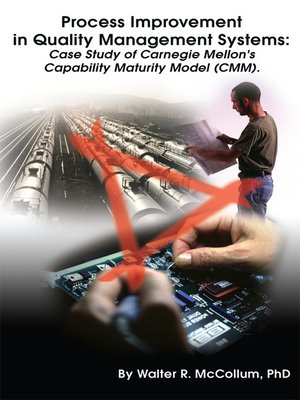Process Improvement in Quality Management Systems
ebook ∣ Case Study of Carnegie Mellon's Capability Maturity Model (CMM)
By Walter McCollum

Sign up to save your library
With an OverDrive account, you can save your favorite libraries for at-a-glance information about availability. Find out more about OverDrive accounts.
Find this title in Libby, the library reading app by OverDrive.



Search for a digital library with this title
Title found at these libraries:
| Library Name | Distance |
|---|---|
| Loading... |
After more than two decades since the advent of Total Quality Management, one
might think there was nothing left to say regarding its application, but Walter
Ray McCollum shows that one would be wrong. Process Improvement in Quality Management Systems: Case Study of Carnegie Mellon's Capability Maturity Model (CMM) explores how a company
can obtain Level 3 compliance where an organization's processes for management
and engineering activities are formally defined, documented, and integrated into a standard process that is understood and followed by the organization's staff in the development and maintenance of software. Once an organization has reached this level, it has a foundation for continuing progress. New processes and tools can be added with minimal disruption, and new staff members can be easily trained to adapt to the organization's practices.
Numerous case studies have been enacted across industries to describe successful, and unsuccessful, implementation of quality management systems and
programs. Several generic frameworks for quality management implementation
have been proposed to help organizations achieve quality, productivity, and gain a competitive edge. However, few attempts have been made to synthesize frameworks for measuring quality management practices, especially with regard to managing software quality. Phan (2001) found the best-known work concerned
with process improvement was the Software Engineering Institute Capability
Maturity Model (CMM). However, very few studies have examined the effects
of process improvement on quality management systems, and no studies have
addressed the variables that impact the effective use of SW-CMM. McCollom
mitigates these gaps to offer software development professionals, and developers of quality management systems, the information they need to enhance their effective use of SW-CMM. This book empowers projects, teams, and organizations by giving them the foundation to support reasoned choice, and identify fi ndings relative to the effects of process improvement in quality management systems using SW-CMM, process focus, and risk management training.
Marilyn K. Simon, Ph.D.
President Math Power







